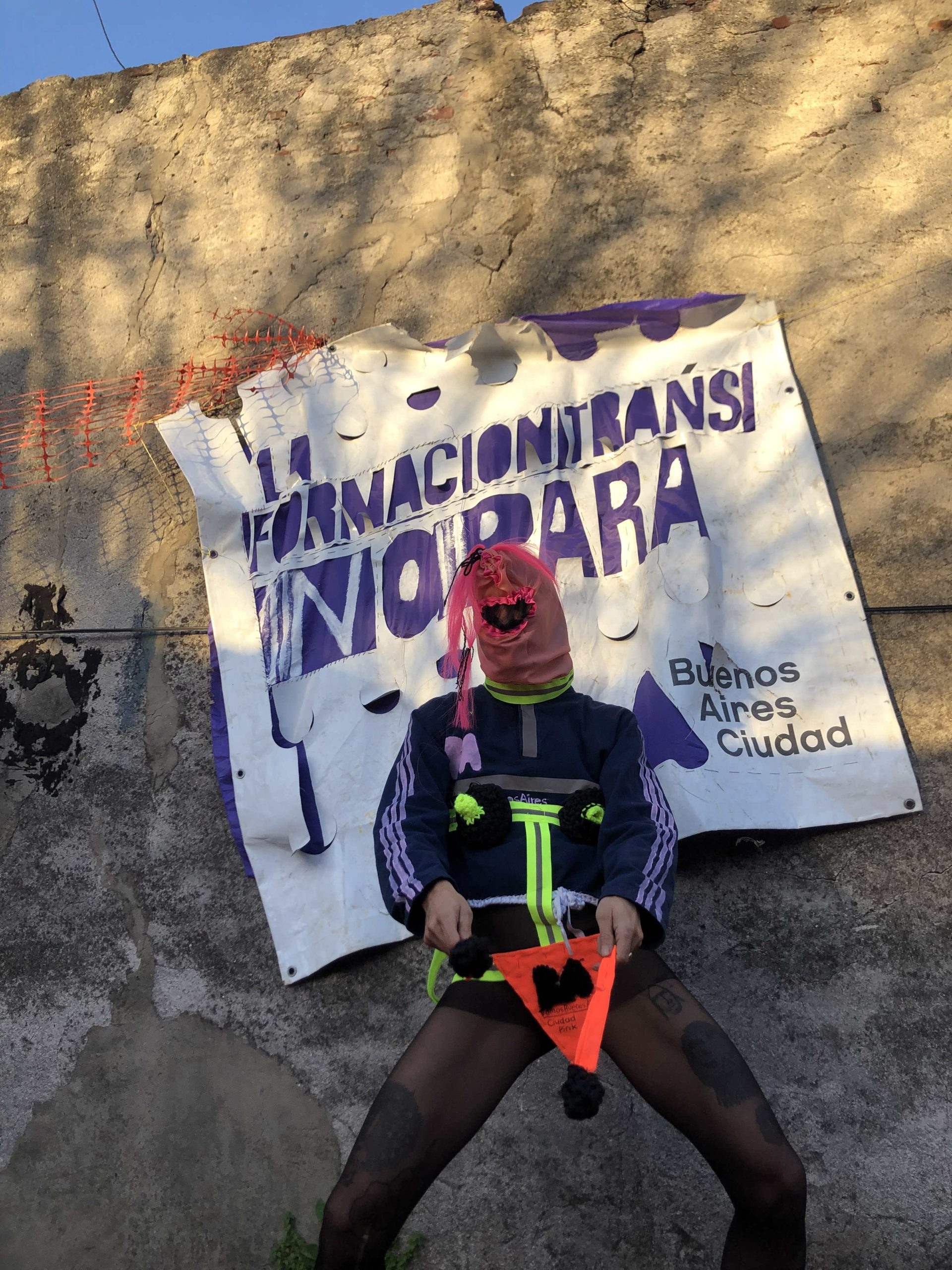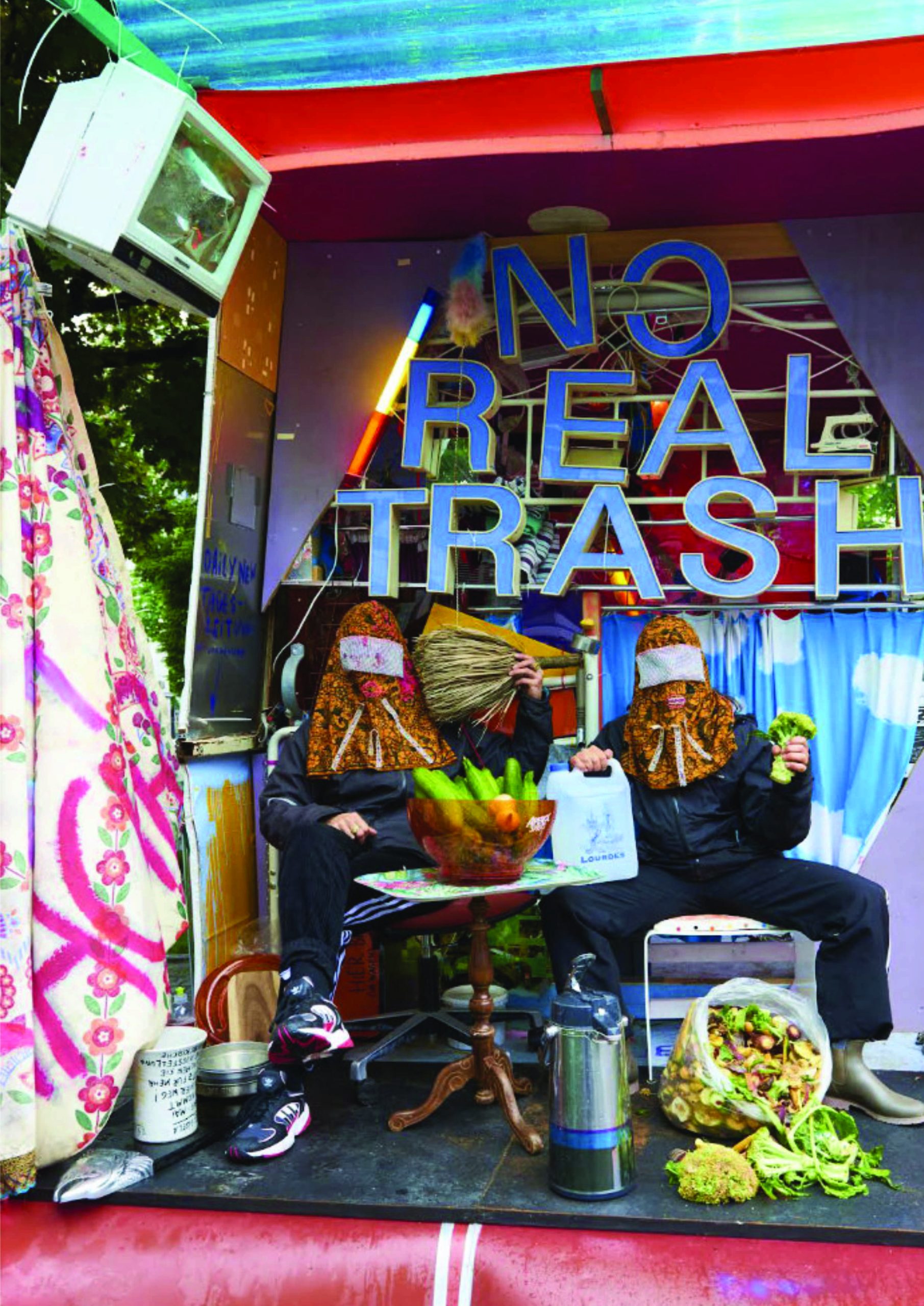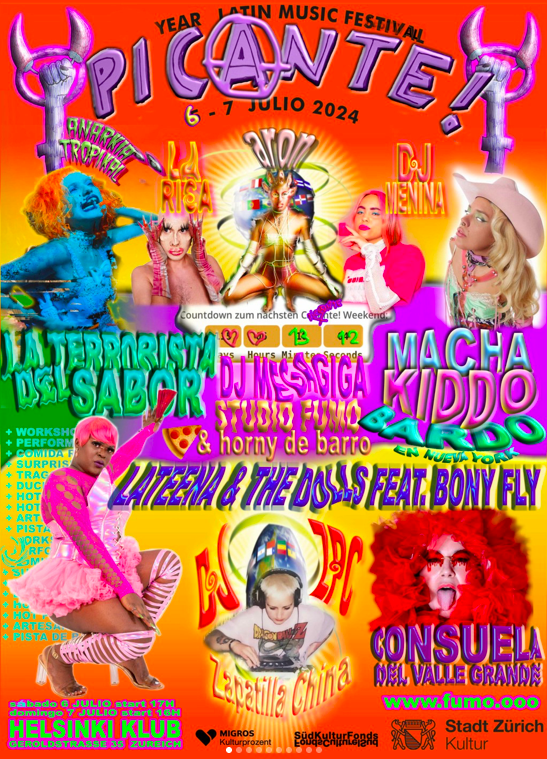Studio Fumo is not just any art collective; it’s a nexus of art and activism, dedicated to exploring and challenging social codes through innovative and provocative means. Operating at the intersection of public art and what they term ‘public glitch’ entails, Studio Fumo pioneers new formats in art with a focus on social change.
I recently had a conversation with Studio Fumo’s founders, Melanie Bucher and Vera Egli, who are both artists based in Zurich, Switzerland, to find out more about their collective, here is how it went:
Ruvesen Naidoo: What initially sparked the formation of STUDIO FUMO as a collective?
Studio Fumo: We have always lived and worked together since we met in 2007. With STUDIO FUMO we started in 2019 before the pandemia. In this time the need for collective care entered a new dimension. Loneliness as a severe consequence of the pandemia became a major topic in our society. The urge for independent collective spaces in public became more necessary than ever.
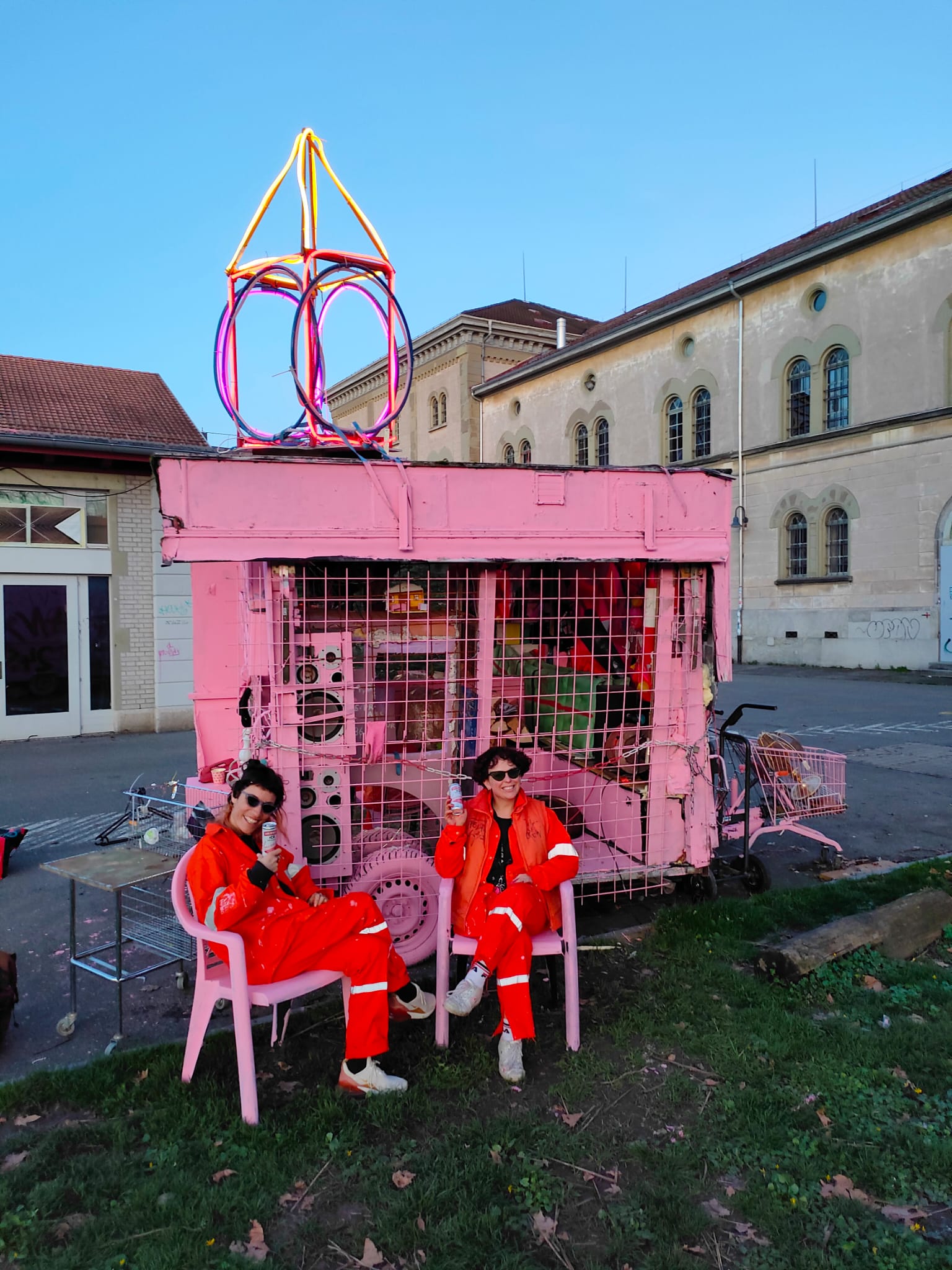
RN: Could you explain how the concept of ‘public glitch’ manifests in your work, particularly in projects such as ‘Reclaiming Zurich’? What does ‘glitching’ public spaces symbolise for Studio FUMO?”
SF: In Zürich, we started with urban interventions by hacking the codes of the city. Zürich is one of the wealthiest cities in the world and everything is hyper-designed and proper. By slightly changing the common sense of urban aesthetics it is already considered a glitch. All our installations in public are always balancing between disturbance and art. There is always someone bothered by our aesthetics. By our interventions, we try to question and change the mutual understanding of so-called “normality” in a hyper- capitalistic heteronormative western society.
RN: How do you navigate the challenges and opportunities of creating art that engages directly with public audiences, within your local context and even internationally?
SF: In Zurich, we know the territory and social codes very well. This makes it easy for us to play with it. With action research and cultural hacking, we try to identify the grey zone of opportunities for actions. This gives us direct feedback from public audiences and institutions sometimes. During our 6 month residency in La Boca, Buenos Aires we were confronted with new realities and very different codes. It took us some time to read them and even more to question them. It is challenging to criticise the same issues in a foreign territory.
RN: Your collective is described as queer feminist and transdisciplinary. How do these identities influence the themes and methodologies of projects that are produced?
SF: As two queer artivists our values and identities necessarily lead us to queer:feminist topics. With our projects, we therefore try to make our reality more appealing. The methodology is always transdisciplinary because of our different professional backgrounds as a scenographist and master in trends and identity. We have 2 brains and 4 hands and 2 different perceptions of our so-called reality.
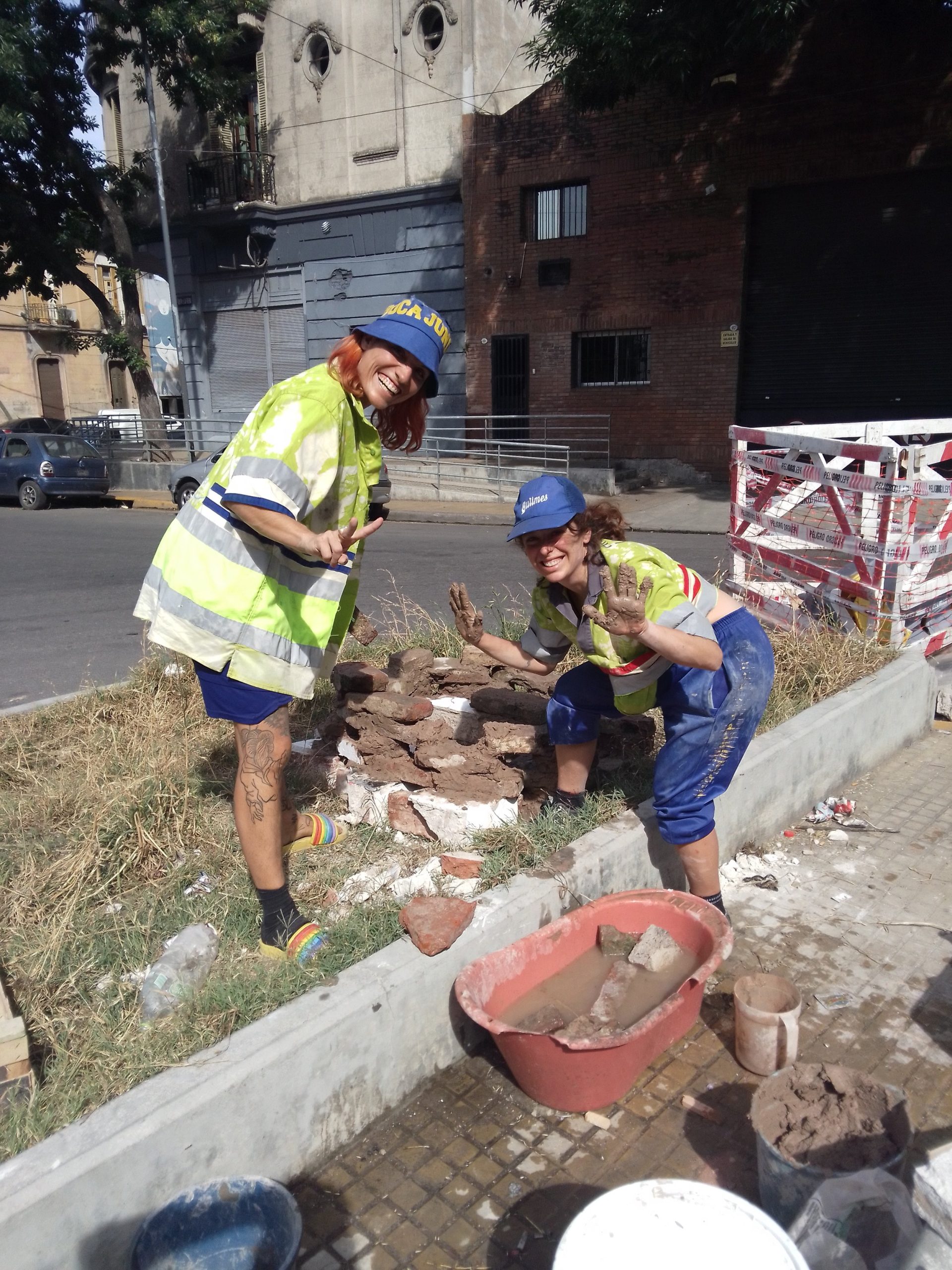
RN: Why is ‘Cultural hacking’ becoming popular in the art realm? Why is it becoming a desirable aspect of contemporary art specifically?
SF: By knowing and understanding our daily habitat we are able to identify destructive patterns and reclaim them into something new and eventually more constructive. It is a thin line. Our art is always shaped by a social critic, which is urgent for our own personal well-being. In the times we live in it seems impossible to remain silent. Hacking is a smooth way to bite the system with its own bits.
RN: Would you consider your experience as an artist and an artist as being synonymous? What’s distinct and common about the two? What makes each role unique?
SF: We are always doing art and activism. It is interesting to do activism while playing with art and thus acting as an artist. To change the roles can be very helpful in order to address different people and art gives us the freedom to express activism in a more creative way. The more urgent a problem is, the more we try to solve it with direct activism. For example, if the housing crisis in Zürich hits us personally due to extreme gentrification, we get active without covering it in the art context. In general, there are topics we should not do artwashing. In German, we use the term “Kunstfreiheit ” which means the freedom of speech under the name of art. Often this helps to legalise protest, but art should never trivialise it.
RN: I would love to hear about PICANTE!, do you mind outlining what the project stands for? Briefly take me through its conceptualisation.
SF: The PICANTE! Festival is a common project with our Argentinien network of artists. They asked us to play in Zürich and find housing for them. This initially was the start of the festival. There is a highly commercial Latin music festival in our neighbourhood called the CALIENTE. It emerged from a free street festival to a closed highly commercial event. Mainly we would like to create a network to establish a queer:feminist latinxs “Contra Caliente” and we also hacked their aesthetics.
Artists often engage with social systems by critiquing them directly through their work, subverting norms, amplifying marginalised voices, or using art as a tool for activism and social change- However, the art world itself is a social system with its own hierarchies, gatekeepers, and trends that can shape artistic production and reception.
Acknowledging the role of social systems in contemporary art is about understanding art not just as isolated creative expression but as deeply intertwined with the societal structures and dynamics that surround it. This awareness helps to contextualise artworks within their historical and cultural contexts and encourages a more critical engagement with the ways art shapes and reflects our understanding of the world.
